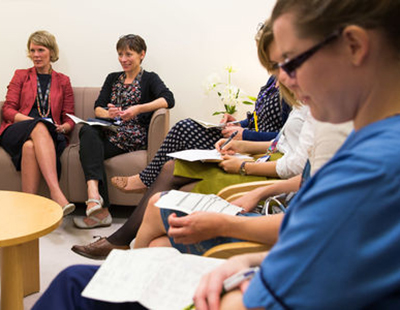Researchers in Scotland to gain access to further NIHR research funding

From autumn 2023, health and social care researchers, and in some cases SMEs in the devolved administrations (DAs), will have increased access to health and social care research funding via the National Institute for Health and Care Research.
The move has been agreed following consultation with the Scottish Government’s Chief Scientist Office, Health and Care Research Wales and Health and Social Care Research & Development in Northern Ireland.
The announcement expands the list of NIHR research programmes that are available to researchers in Scotland, Wales and Northern Ireland.
This will boost cross-UK research and help increase access to research for people in the three devolved administrations.
The NIHR, through DHSC, has had an arrangement with the DAs since 2008 based on investments from each nation that has allowed research hosts (including universities and research active NHS organisations) in the three nations to apply for NIHR funding from four research programmes (Health Technology Assessment (HTA), Health and Social Care Delivery Research (HSDR), Public Health Research (PHR), and Efficacy and Mechanism Evaluation (EME)) that would otherwise only be open to English research hosts.
Expanding the reach of NIHR funding
A new partnership funding arrangement has been agreed that will provide greater access to NIHR research programmes, with the door open to further cross-UK working on funded research in future.
Researchers and in some cases SMEs will be able to access five further NIHR research programmes from autumn 2023:
- Evidence Synthesis
- Invention for Innovation (i4i)
- Research for Social Care (RfSC)
- Programme Grants for Applied Research programme (PGfAR)
- Programme Development Grants
Boosting access to world-class research
The new funding arrangements will facilitate more cross-UK research, similar to the successful COVID research collaborations seen during the pandemic. The change will also increase opportunities for researchers in the three devolved nations to collaborate with industry, including pharmaceutical companies and the medical technology industry. The shift in funding eligibility recognises the fact that health and social care research is typically conducted across all four UK nations and is more powerful and efficient as a result.
NIHR’s Policy Research Programme remains open to applications from researchers in the devolved nations but the programme and its funded research is focused on English policy needs.
The Chief Scientist Office will be working with the health research community in Scotland over the coming months to ensure awareness of these opportunities and to maximise the number of high quality applications from Scotland to these funding programmes going forward.
Professor Dame Anna Dominiczak, Chief Scientist (Health) for Scotland said:
“ The Chief Scientist Office welcomes the increased access to the NIHR Research Funding Programmes for researchers based in Scotland. I am confident that these programmes will see many high quality applications from Scotland going forward.”
Professor Ian Young, Chief Scientific Advisor and Director of Health and Social Care Research and Development said:
“ The extended access to NIHR funding programmes represents a welcome increase in opportunities for Northern Ireland-based researchers to lead studies across the range of health and social care priorities, and, importantly, for more of our citizens to participate in an expanded range of research initiatives. I look forward to our research community building on the successes to date, producing evidence on which to base future practice, and to our indigenous SMEs benefitting from the new opportunities specifically provided by the i4i Programme.”
Professor Kieran Walshe, Director of Health and Care Research Wales, said:
“ We are delighted with the expansion of our current agreement and the access to a greater range of NIHR funding programmes that this will bring. The new partnership arrangements will increase opportunities for researchers in Wales to both lead and participate in studies of UK significance, while strengthening health and care research in the UK across the four nations.”
Minister of State for Health Will Quince said:
“ We’re making sure the best scientists across the UK are supported with the resources and research funding they need to continue making incredible scientific breakthroughs that save lives and enable the NHS to provide the best possible care.
“Increasing access to funding through the National Institute for Health and Care Research and expanding the opportunities available to researchers right across the country will boost cross-UK research and improve collaboration, opening the door for many more opportunities.
“We’re also bolstering the tools which researchers have at their disposal by giving NHS organisations a share of over £96 million to purchase cutting-edge equipment, like mobile CT scanners, to advance their ground breaking work and reinforce the UK’s research capabilities.”
Professor Danny McAuley, Scientific Director for Research Programmes at NIHR and based at Queen’s University Belfast, said:
“ This important change to our programmes’ eligibility criteria will mean researchers across the three devolved administrations of the UK will have increased access to health and social care research funding through NIHR. Ultimately, it will also allow more people to take part in world-class research in Scotland, Wales and Northern Ireland. This update to our funding processes recognises the fact that the best research happens across borders through collaboration and diversity.”



